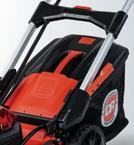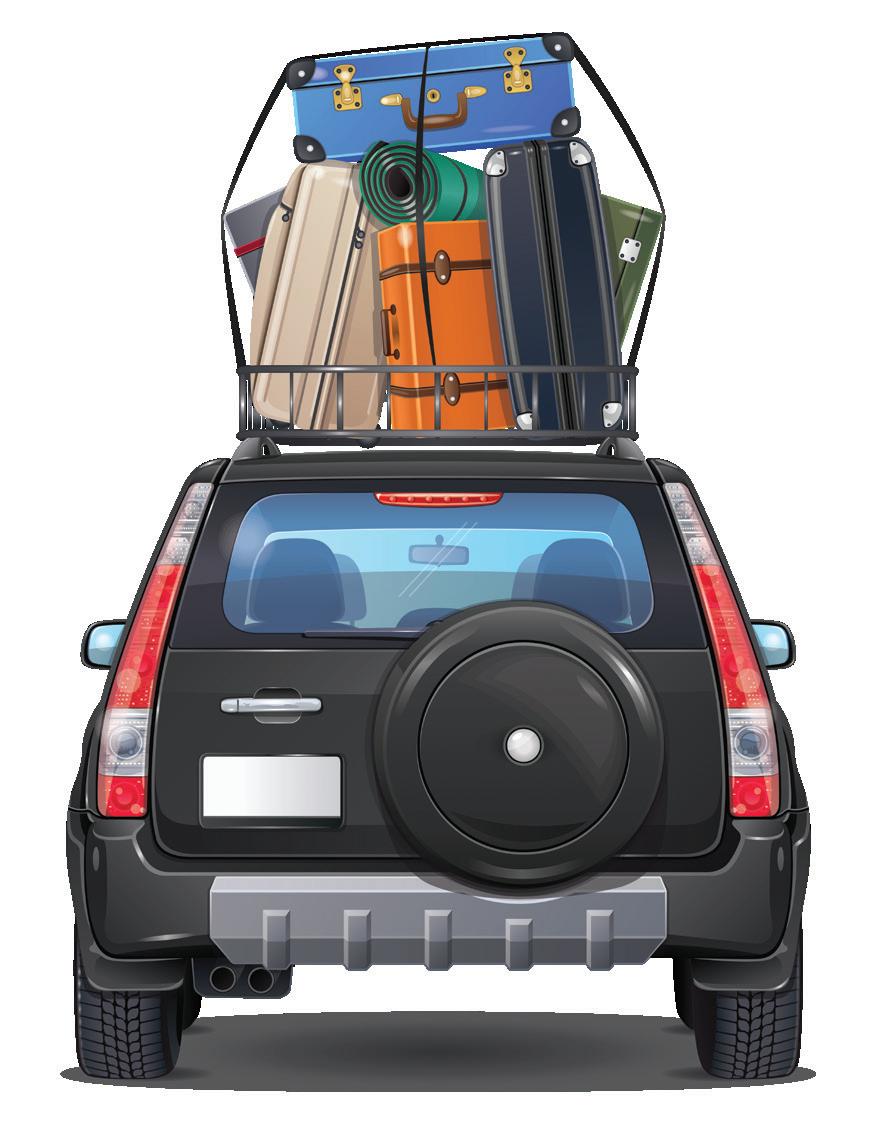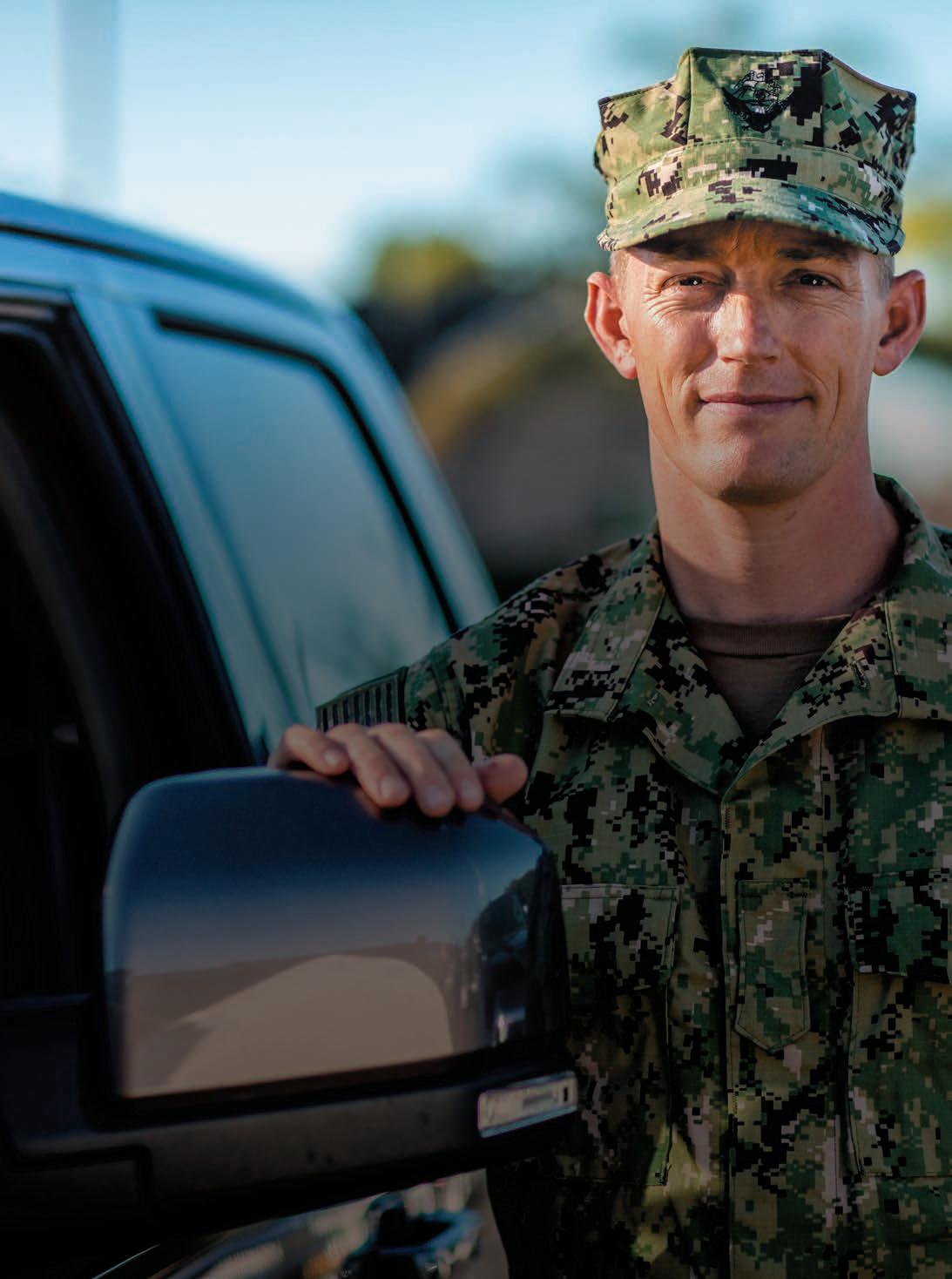




Make no mistake, PCSing is hard. Just when you settle in, it’s time to pack up again. Isn’t this the refrain of this military life?
This may sound strange but I keep an enormous Tupperware of curtains and pillow covers, hoping that some of them will work in a future house and I won’t have to buy new ones every two years (or less). And I’m sure you have your own system of pre-move organizing. Mine is rather mental and involves sorting all of my utensils in plastic bags before the movers arrive so that they won’t lose my flatware.
The unglamorous behind-the-scenes of a military move shows the practicality required when you move all. the. time. Yes, as military families we have new adventures to conquer, new friends to meet, and new jobs to take. But that also requires finding a new dentist, a new hairdresser, new sports teams for the kids, and so much more.
In our annual PCS issue, we’ve gathered some practical tools to help you in the process. Our article on pay and resources for your next move includes a

breakdown of military-moving lingo you need to know. We also have an article on moving with the furry loved ones in mind — something that can be one of the more challenging stressors of a move.
Our cover story highlights Marine spouse and blogger Noëlle Boyer. Through her frequent moves, she’s learned that social media can be a valuable tool for making connections before setting foot in a new duty station.


“As a military spouse, you make a friend, you leave a friend,” Boyer says of the military lifestyle. I love that thought.
Yes, this is hard but we can do hard things. We have a community like no other to help along the way. Good luck with your upcoming move. If you’re not PCSing this year, connect with those who are — lend a hand, or help unpack a few boxes.
 Noëlle Boyer and her family in North Carolina. Photography courtesy of John Althouse.
Andrea Downing Peck
Teal Yost
Kristen De Deyn Kirk
Sierra Redmond
Jessica Manfre
Emma Comery
Risa Kerslake
Kaitlynn Copinger
Assistant Editor Susan Malandrino and her family before PCSing to Europe in 2018.
Susan Malandrino Assistant Editor
Noëlle Boyer and her family in North Carolina. Photography courtesy of John Althouse.
Andrea Downing Peck
Teal Yost
Kristen De Deyn Kirk
Sierra Redmond
Jessica Manfre
Emma Comery
Risa Kerslake
Kaitlynn Copinger
Assistant Editor Susan Malandrino and her family before PCSing to Europe in 2018.
Susan Malandrino Assistant Editor
Military Families Magazine by AmeriForce Media, LLC, is published 12 times a year for active duty service members and their families. Copies are available through participating family service centers, relocation offices, transition offices, base lodges, libraries, daycare centers, MWR activities and other locations by request.

Unit distribution requests can be made online at www.AmeriForceMedia.com/ mf/print-magazines/
Individuals can order a free digital edition of this issue at www.AmeriForceMedia.com/ mf/subscribe-free/
Editorial comments can be emailed to managing.editor@ameriforcemedia.com
Military Families Magazine is published by AmeriForce Media, LLC, Bloomington, Indiana, a private company. Information and advertisements in this publication do not constitute endorsement by any branch of the military or the Department of Defense. No part of this publication may be copied without the express written permission of the publishers. AmeriForce Media, LLC, the publishers, and publisher’s agents make no endorsement of any advertised services or products and none should be inferred.
President and Publisher | Todd Taranto
Managing Editor | Bianca M. Strzalkowski
Production Editor | Melissa Stewart
Assistant Editor | Susan Malandrino
Design | Open Look Business Solutions

ADVERTISING
PLEASE CALL 703-337-8100
Todd Taranto Publisher
Todd.Taranto@AmeriForceMedia.com
Julie Miller Vice President, Sales
Julie.Miller@AmeriForceMedia.com
 by Bianca Strzalkowski
by Bianca Strzalkowski


















































Air Force spouse Jennifer Borkey has left base once this year — to travel to a nearby post for a dental appointment. Borkey, her husband, and two children, ages 10 and 13, have made the most of their time confined to a 1,630-square-foot apartment on Robinson Barracks, one of the five installations that comprise Army Garrison Stuttgart.
Over the past year, the garrison, home to more than 20,000 U.S. military personnel, federal agencies, civilians, and family members, has maintained a variety of restrictive lockdown measures in conjunction with host-nation and Army policies.
During this time, Borkey’s read 30 books, picked up knitting, and refined her sewing skills. Her advice to other families — “If you don’t have a hobby, find one.”
On March 10, 2020, at the start of the COVID-19 pandemic, Stuttgart closed all

non-essential services, including CDCs, gyms, and playgrounds. DODEA schools in the region were closed around the same time too.
While a variety of restrictions were lifted in the summer and travel restrictions eased slightly, the situation has remained fluid. New lockdown procedures, including curfews, school closures, and travel restrictions, were put back into place in November and again in December.
Commissaries, exchanges, and the post office have remained open, but nearly
 Courtney Suesse, Petty Officer 2nd Class Matthew Suesse, and their daughter, Stella, pictured in Colmar, France before the pandemic.
Jennifer Borkey, her husband, Master Sgt. Brent Borkey, and their children, Zara and Xander, enjoyed hiking in Blautopf, Germany when restrictions were eased over the summer.
Air Force spouse Jennifer Borkey has refined her sewing skills during the Stuttgart lockdown.
Courtney Suesse, Petty Officer 2nd Class Matthew Suesse, and their daughter, Stella, pictured in Colmar, France before the pandemic.
Jennifer Borkey, her husband, Master Sgt. Brent Borkey, and their children, Zara and Xander, enjoyed hiking in Blautopf, Germany when restrictions were eased over the summer.
Air Force spouse Jennifer Borkey has refined her sewing skills during the Stuttgart lockdown.
all other retail facilities, including most out in town, have remained shuttered.
As of press time, DODEA schools in the region were partially reopened and some restaurants were allowing takeout but the majority of restrictions remain, including in-person gatherings, which are currently limited to 10 people from two households. While residents are allowed to exercise outdoors with a mask, their movements are geographically limited.
For Borkey, one of the biggest differences about being stationed overseas is that rules are not optional. “People state-side might not understand that when we are handed down regulations, we have to follow them,” she said.
“There’s no doubt that the community has had to make a great deal of sacrifices this year, especially with things that you take for granted,” Paul Hughes, public affairs specialist at USAG Stuttgart, said during a phone interview in late February.
With no 4th of July celebration, Halloween canceled, Thanksgiving and the winter holidays limited, and no New Year’s celebration, COVID-19 restrictions have significantly impacted the Stuttgart community, Hughes says.
Still, he praises the dedication during this challenging chapter, including wearing masks and practicing social distancing. “It’s been tough and I think the second lockdown is wearing on people a little,” he said.
Navy veteran and spouse Courtney Suesse says that the lockdown has been a struggle emotionally. Having a 3-year-old at home and balancing a full-time college course load during the pandemic has taken a toll emotionally.
“Everyone has gotten in their feelings and way more personal,” Suesse said, noting that she’s found assistance through a behavioral health licensed counselor on post.
“If you’re struggling like I am, I highly recommend reaching out and finding resources,” Suesse said.
Stuttgart Employee Assistance Program Coordinator Kim Roedl says that the garrison has worked hard to make sure families and service members have access to physical and mental health resources. Her office has ramped up its efforts to connect with families and ensure that they know about their free, confidential, and short-term counseling and referral services.
“We want people to know that we are here for them, and we are always here to listen,” Rodel said in an email.

In addition to mental health services, Suesse says that technology has been a lifeline during the home-bound months. Her daughter has tea parties with her grandparents and playdates with her aunt via Facebook messenger.

The highlight of each week has been an international virtual trivia with family.
“It’s midnight for my sister in Saigon, 6 p.m. for our family in Germany, and noon for my in-laws in the Outer Banks of North Carolina. We make it work across the globe,” she said.
Game nights have been such a success for Suesse that she connected with other spouses to start a local version. The group, to which Borkey also belongs, has been meeting for over a year. With the restrictions in place, they’ve only met in person once during that time even though they live relatively close.
Suesse says that the game night is a fun release and time to gather. “We commiserate about lockdown and when someone misses a question we tease them saying ‘since you’re a homeschool teacher now, shouldn’t you know the answer?’”
Both Borkey and Suesse are looking forward to getting off post and exploring the surrounding area once restrictions are lifted.
“We are most looking forward to travel, travel, and did I say travel?” Borkey joked.
In the meantime, Suesse is walking the base and nearby areas as permitted and exploring German life as she can.
“There are still trails to walk, architecture to see. . . There’s still an international community you can experience while still being bundled into this military community,” she concluded.


Don’t expect to see sailors “manning the rails” of destroyers or cutters parading through New York Harbor this spring. Don’t expect to see more than 3,000 men and women in uniform taking over the city streets, standing in line at the Empire State Building or in the outfield at Yankees and Mets games. Instead, to get a glimpse of the military action, spectators will only need a phone or computer. Like most major events in 2020 and 2021, this year’s Fleet Week New York is going virtual.
coronavirus. Keeping our Sailors, Marines and Coast Guardsmen at home is the best way to ensure we protect the health and safety of New York and our force so we can return to normal as soon as possible,” Rear Adm. Charles W. Rock, Commander, Navy Region Mid Atlantic, stated in a press release.
Fleet Week is an annual tradition in which the Navy, Marine Corps, and Coast Guard team up to show off the military’s latest capabilities to the public. Since the 1980s, the services have used it as a recruiting tool.
event, due to budget cuts brought on by sequestration.
One benefit to the online event? You don’t have to call the Big Apple home to take part in this long-standing tradition.
“We’re excited to once again connect with people online in New York and all around the world,” Rock said. “No matter where you are, you will be able to find us on social media and watch whenever it is convenient for them so they can see how the Navy, Marine Corps, and Coast Guard safeguard our nation and how incredible the men and women who serve in uniform are.”
The patriotic festivities are more than just a signal to New Yorkers that summer is on the horizon — the event typically overlaps with Memorial Day. The celebration of all seafaring service members draws tourists from around the country.

After the New York metro area saw a sharp spike in new coronavirus cases in January of this year, numbers have fallen steadily. Still, as of late February, just over 5% of those living in New York City had completed the COVID-19 vaccine series
“The Navy is committed to doing everything it can to defeat the
For New Yorkers, Fleet Week is more than just an opportunity to spark the interest of future sailors or Marines. The New York Economic Development Corporation says the maritime-themed week of events typically brings $20 million in annual revenue to the city. For a country and city still reeling from the economic implications of coronavirus shutting down hotels, restaurants, tourist attractions, and more, the news of another virtual event delivers a sharp blow. This isn’t unprecedented, however. In 2013, Fleet Week New York was canceled entirely, just one month before the massive
The Navy hopes to build on what was already a successful online event in 2020. Highlights of Fleet Week each year include aircraft demonstrations and in-person ship tours. More than 170,000 people viewed videos posted as part of last year’s Virtual Fleet Week New York.
Mark your calendars for May 26 through May 31 for all of the virtual access to the events taking place in the sea and the sky. Fleet Week New York is still developing this year’s schedule but will post all updates on its Facebook, Instagram, and Twitter accounts.
 An explosive ordnance disposal (EOD) technician flies along the New York City skyline in an MH-60S Sea Hawk during Fleet Week New York 2019. Photo by Chief Mass Communication Specialist Jeff Atherton.
An explosive ordnance disposal (EOD) technician flies along the New York City skyline in an MH-60S Sea Hawk during Fleet Week New York 2019. Photo by Chief Mass Communication Specialist Jeff Atherton.

“I try to be as real as possible in my Instagram stories, sharing the behind the scenes,” Boyer explained during a phone interview. “Like right now, while I’m talking to you, I am looking at a basket full of laundry that is clean but wrinkled up in a ball. It’s Thursday. Maybe I’ll get to that on Sunday.”

Boyer, 31, admits she wasn’t always as nonchalant about laundry, a less-thansqueaky clean house, or the realities of parenting. She first began sharing her motherhood journey through Facebook posts as she struggled with breastfeeding her newborn son.
“I had all these expectations about what motherhood would look like,” Boyer, whose third child was due last month, said. “I had to remove those expectations off myself because certain things like breastfeeding didn’t come naturally to me. I wasn’t able to do it so I had to remove that layer of raising a breastfed, organic wearing, only eating homemade food baby. I remember feeling completely defeated in those first early weeks as a mom.”
While the realities of military life had helped to derail Boyer’s journalism career aspirations, social media provided an outlet for her writing. She shared her breastfeeding journey on Facebook, a story that resonated with a host of friends who reposted her narrative. It was the encouragement she needed to begin sharing more about her life on social media, in part to provide a window into military life for family members and civilian friends.

“My Instagram and Facebook became like my blog before I had a blog,” said Boyer, who uses the “Rule of 3” productivity principle to start each day. “It became my practice getting back into writing and trying to encourage others in a similar boat that I was in at the time.”
Boyer confesses she had been talking about starting a blog “forever,” but didn’t do so until her friend Kirstin Kruip, a
Four years ago, balancing career, motherhood, and military family life was a daily dance with self-doubt for new mother Noëlle Boyer. Today, Boyer has found her niche as a motherhood blogger and Instagram influencer, sharing her journey to happiness while pulling back the curtain on her Marine Corps family’s life.
freelance content creator, surprised her in 2019 by creating a website based on her top Instagram posts. As the website grew in popularity, so did Boyer’s Instagram account, which now has nearly 6,400 followers, lifting her to “micro-influencer” status.
“Once the Band-Aid is ripped, I just keep going,” Boyer said. “But it really helped having that friend who wouldn’t let me keep waiting for the perfect time.”

“Doing motherhood with less guilt and more joy” is Boyer’s Instagram bio tagline and her posts reflect just that. Her Instagram stories range from a behindthe-scenes look at a typical day with her 1- and 4-year-old sons — which is best
summed up by the Marine Corps motto “adapt and overcome ”— to the family’s cross-country move from San Diego to New Bern, North Carolina, and a tutorial on “plopping” naturally curly hair. As an interracial family, Boyer also has tackled weighty topics such as race.


“So much has changed in just the last 10 years in the sense of what people want and encourage you to share,” Boyer explained. “Obviously, there are things I don’t share about. I never share where my husband is located [during a deployment] and things like that. I primarily share about my relationship with my husband pre- and post-deployment, how I manage moves with my kids, how I explained to my kids why their daddy is gone. It’s always about how to help other spouses find their footing because that’s exactly what seasoned spouses did for me.”
Kruip, a Navy spouse, says her good friend “epitomizes the modern military spouse, someone who is unafraid to share honestly about their life and say, ‘Hey, this is hard. This isn’t all sunshine and rainbows.’
“I believe her role as a social media influencer in the military community, and in the broader civilian community of moms and parents, is valuable because so many people can relate to what she posts about,” Kruip added. “Through her content, Noëlle gives people within the community the opportunity to feel seen and validated in their own experiences and struggles.”
Boyer acknowledges leaving San Diego was challenging. After four years in California, the Ohio native said she “finally felt rooted in one place,” which made it that much harder to leave the Marine Corps Air Station Miramar community, where she gave birth to two of her children and found her voice on social media.
“Whenever I move somewhere, I always try to find someone to connect with. Whether it is a friend of a friend, I try hard not to show up in a new place not knowing a single person or without a plan to know somebody,” Boyer said. “So, putting myself out there is something I’ve had to learn to do.”
A decade after failing to build the career she had envisioned as a journalist, Boyer’s talents as a writer, vibrant personality, and frank talk about motherhood and military life have translated into an incomeproducing and rewarding vocation inspiring other military spouses and new mothers.
“What my mentors or more seasoned military spouses have shown me is to do whatever you can to reach your hand out to help another new wife coming into this world,” Boyer said. “A lot of my friends are 10 years younger than me. They’re just starting the journey and don’t know where to start, so to be able to have something to write to encourage them, that’s my whole goal.”
Follow Noëlle Boyer online at www.instagram.com/noellerboyer.
“As a military spouse, you make a friend, you leave a friend,” Boyer says of the military lifestyle. But she adds social media can be a valuable tool for making connections before setting foot in a new duty station.
Receiving orders for your next PCS move may bring a smile to your face — a new job, adventure, and opportunities await at the impending location. However, given how challenging a move can be, the acronym may elicit a less enthusiastic response — or worse — feelings of anxiousness or dread.
Megan Harless understands. A former transportation officer in the Army and a military spouse for 13 years, she’s moved 12 times. Through her Facebook group, Military Spouse
Chronicles, families have posted about unpleasant moves.
“They had horrible experiences,” Harless said from her home in Red River, Texas, where she’s lived for two years with her husband and three children. “I wrote an open letter about PCSs to share them.”
The letter became a Change.org petition to improve the process. The U.S. Transportation Command took notice and soon made changes, as recommended by a committee Harless joined.
The changes were designed to make moves safer, faster, and less expensive. For example, starting in May, TSP movers approved to assist military families must have customer support available on Saturdays during the summer move period. They must also use tamper seals on boxes.
Earlier improvements included increasing crating, adding an aroundthe-clock hotline for troubleshooting, upping liability coverage, and requiring background checks for TSP employees.

Harless advises starting preparations as soon as you receive your official orders. Your first source of help: Defense Personal Property System (DPS).
“Go online to Move.mil immediately to access DPS. Don’t wait until you find out your exact address,” she said. “You can update your information later. You want to get your move scheduled immediately.”
You can review the details and the dollar amount of your benefits, based on your rank and number of dependents, in the Joint Travel Regulations document A summary of your benefits and more resources are available online and at Harless’s site PCSlikeapro.org
With luck, your expenses will all be covered — even if you decide to PPM it, electing for a Personally Procured Move. Formerly known as a DITY — a do-ityourself move — this is an option, that allows you to be reimbursed for expenses.
Harless notes that the amount is now set at 100% reimbursement, up from 95% a year ago, as allowed by your rank and number of dependents.
No matter how you execute a PCS, you might qualify for tax breaks for nonreimbursed expenses. Jessica Muse, a retirement specialist with PARCO — a retirement planning company in Washington, D.C., notes that tax deductions can get you closer to covering your full moving costs if they weren’t already completely reimbursed by the military — as long as they are considered appropriate.
“Keep a checklist with research on reasonably priced hotels in the area if you’re claiming that cost,” Muses advised.
Other deductible expenses may include packing, packing supplies, crating, shipping, and rented trailers.
Your organizational skills will be tested once again as you track all of these expenses for possible tax deductions. Charlene Wilde, a military spouse, veteran, and now assistant secretary of AAFMAA, managed seven moves in the past 15 years. She found a number of ways to record costs, beyond stacking paper receipts together, including using banking apps that categorize charges, taking photos of receipts, and asking for e-receipts.
Whichever way you choose, gather the receipts to complete Tax Form 3903. As you track your deductions, ensure the total amount and earlier reimbursements do not add up to more than your expenditures. Wilde recommends working with a CPA or other tax professional familiar with military benefits to help you double-check for such potential mistakes.
Look beyond your moving expenses for additional tax breaks, too. You might have the option to keep residency in your home state and therefore lower or eliminate your state income tax.

“If your new state collects income tax, but you’ve kept residency in a home state that does not, it’s possible that the new state cannot enforce income tax,” Wilde said. “You might also be able to receive a refund on any withheld income taxes from your paycheck if you file as a non-resident.”
Transportation allowance: This covers the cost of moving your vehicles, based on your mileage.
Per diem: The per-day payment to cover your meals, lodging, and other small expenses during the days you travel based on your approved number of moving days.
TLE (Temporary Lodging Expense): You may receive approval for up to 10 days of temporary lodging for continental United States (CONUS) moves. This time may be before or after your move.
TLA (Temporary Lodging Allowance): This is similar to TLE, but covers up to five days in the continental United States before your OCONUS move and up to 60 days after your move.
DLA (Dislocation Allowance): This benefit helps cover extra costs, such as shipping a car, making a housing deposit, cleaning the home you’re leaving, or paying for pet-related expenses.
GTCC (Government Travel Credit Card): Some service members can receive a credit card to cover expenses instead of being reimbursed.
Weight Allotment: This is the amount of household goods you can move and be reimbursed for, based on weight. The amount is figured by your rank and your number of dependents.
Pro-Gear Allotment: You are given a separate total of pounds allowed for shipment for equipment related to your and your spouse’s profession.
PCS lingo and resources to know before you go
Having grown up in a family in which assorted relatives served in the military, Reda Hicks thought she knew what being married to the Army would be like. She quickly learned she was wrong.

“When it’s your aunt or uncle or grandparents who served before you were born, it’s just different, right?” Hicks said. “You can hear their stories but you don’t see what the difficulties are firsthand.”
As a practicing attorney, Hicks soon found out career portability was a major issue facing military spouses. While on maternity leave with her first child, she became active in the Family Readiness Group at Fort Polk Army Base
in Louisiana and a founding member of the Military Spouse JD Network (MSJDN), which advocates for licensing accommodations for military spouse attorneys. MSJDN has since championed successful efforts in 40 states to enable military spouse attorneys stationed in those states to be admitted to the State Bar under reciprocity rules.


“I figured I’m a lawyer. I’m an advocate at my day job. These are skills that I can put to use for my community,” stated Hicks, who was the 2014 Armed Forces Insurance Army Spouse of the Year.
And she has, particularly in the Houston area, where Hicks maintained the family home during her husband’s final seven years of geo-bachelor
active-duty service. Today, she remains active in MSJDN as well as the Military Family Advisory Network, Bunker Labs’ Veterans in Residence program, Houston Salute to Service, and other civic and military organizations in her city.
While serving as legal counsel for a multinational transportation company, Hicks became an “accidental entrepreneur” when she set out to solve another problem affecting militaryspouse business owners and small entrepreneurs. In 2017, Hicks launched GotSpot, Inc ., an Airbnb-style platform that matches entrepreneurs, nonprofits, and enterprise businesses with vacant commercial space that is available for rent hours, days, or weeks at a time.
continue reading on page 30

Whether it’s a uniform or a suit, there’s something to be said for the well-dressed man. As the owners of Harrell’s Menswear, Army veteran David Harrell and his wife, retired Air Force Reserve Master Sgt. Leola Harrell, know this better than most.
Based in Lauderhill, Florida, the company specializes in high-end blazers, tuxedos, and three-piece suits for the everyman.



Of course, the heat and humidity of South Florida isn’t exactly the most hospitable environment for a suit and tie. With that in mind, Harrell’s pieces prioritize comfort and breathability while maintaining the highest standards of luxury. Why? Two words: Dapper

“Because you can look dapper seven days a week,” David said.
For David, putting on a perfect suit is about personality, class, and confidence. It’s about discovering the endless possibilities of your unique style no matter where you are in life.
Before opening his store, David had a career as a professional model and model coach. Now, as a designer and business owner, he is combining his passion for fashion with his love of helping others.
“The first impression should be the best impression,” he said.
Leola says that starting the business was a leap of faith.
Seven — the motto Harrell created for his brand.“My husband had a dream and a passion that was strong enough for us to go get it,” she explained.
Together, they built the business while balancing Leola’s career and parenthood.
“We did as much as we could with our bare hands,” Leola said. “We made it happen.”
When Harrell’s first opened its doors, the couple traveled the country to curate top-quality products from the best men’s apparel shows. And while they continue to offer designs from around the globe, they now also offer a line of pieces designed exclusively by David himself.
Sharp and stylish, David’s suits have earned the brand a massive following across Florida and the country, with celebrities like Nick Cannon commissioning outfits for television appearances. Their high-quality luxury menswear “transforms the everyday man into the well-dressed man” with a keen eye for style.
More than that, however, David and Leola are helping men curate their own signature style. Yes, this is high fashion, but David is adamant that high fashion can be for everyone. That’s why each visit to Harrell’s comes with a complimentary personal styling session.
“I stand [the customers] in front of 10foot mirrors,” he said, “and I put a jacket on them. It might be their first time wearing a jacket. And when they see themselves, they’re grinning because they didn’t know they could look that good.”
“It’s about educating our customers on what works for their body type so they can stand tall,” Leola added.
Giving back to the community is key for the couple and they incorporate philanthropy into their brand. The company regularly donates suits and


supplies to local veterans experiencing homelessness, incarcerated persons in their community, and underserved youth who need suits for prom or job interviews.
David visits the youth detention center to help residents plan for the future. “I tell them, ‘A little hiccup in the road is not going to stop you. You need to think about what you need to do moving on.’”
“My husband is a man who loves helping people,” Leola said.
The company has also enjoyed hosting essay contests and fashion shows to donate suits to young adults scheduling job interviews.
“These kids come [to the shop] in jeans and a T-shirt,” David said, “and when they put on that suit, they’re a different person. They’re ready for the world.”

 By Kaitlynn R. Copinger
By Kaitlynn R. Copinger
As he struggled to breathe, they pulled over, and Jackson remembers her husband promptly handed their son to her. She worked in a hospital. She knew CPR. She would know what to do.
Instead, she froze, and it was her husband, an Army veteran, who dislodged the candy their youngest child was choking on.
“From that day, I was really upset,” Jackson recalled. “Really upset with
myself that I didn’t react the way I thought I should have.”
As her children grew up, the experience stayed with her. She didn’t want another parent to feel paralyzed during a lifeor-death situation. So Jackson invented — and patented — a tool to help people facing similar crises.
“CPRWrap is a non-technical all-in-one CPR template that projects, guides, and empowers any non-medical responder

empowers any non-medical responder to perform life-saving CPR,” Jackson said.
The product — and her story — resonated at Remote Revolution 2021 , AMSE Alliance’s inaugural summit for military spouses. At the February event, Jackson won first prize in the pitch competition, earning $1,500, plus $35,000 worth of services to grow her business.
Moni Jefferson, vice president of the AMSE Alliance , which supports
It’s every parent’s nightmare.
In 2002, Felicia Jackson and her husband were out for a drive with their three children when their 2 year old started choking.
military spouse entrepreneurs with grants to “start, scale and sustain their businesses,” said Jackson’s patented invention and her inspiring story made her stand out.
“I feel like anything we can do to help move her initiative forward will help save a life as well,” Jefferson said.
Entrepreneurship, Jefferson said, is the “ideal career choice” for military spouses. For Jackson, who said her husband’s service taught her lessons about resilience, that rings true.
“You have to acclimate to different changes in location, meeting different people,” she said. “You have to do a lot with little sometimes. Sometimes it can be lonely, and that’s the same that some entrepreneurs have, especially if you are a solo entrepreneur.”
Saving lives with CPRWrap is Jackson’s top focus these days. After 20 years in the healthcare field, she is now a fulltime CEO, based out of Chattanooga, Tennessee.
Her business journey began a decade ago as she explored FDA requirements, came up with a design, and found a manufacturing company to execute it. By 2017, she had her first prototype.
“I wanted something in its simplest form, something so simple a child could use it,” she said.
The wrap is a translucent overlay with a mouthpiece for breathing and simple, highly visual CPR instructions from the American Heart Association. Small enough to be kept in a first aid kit, the CPRWrap comes in versions for adults, children and infants — and Jackson plans to unveil a canine version later this year.

Her clients include police forces, hospitals, and schools, and her product is available through her website and on Walmart’s e-commerce platform.
Before the COVID-19 pandemic, CPRWrap was on a roll. In 2019, her patent was issued and she was accepted into the highly-competitive Austin Techstars accelerator. She moved to Texas for three months, overcoming her imposter syndrome in the process.
“I was so scared to call myself a CEO,” she said. “I didn’t think I was worthy. When I was done with Techstars, I knew I was more than worthy.”
Like many small businesses, CPRWrap was dealt a

blow by the pandemic. Jackson likened it to starting over. But then something unexpected happened. After George Floyd’s death kindled a national conversation about race and racial justice, Jackson started to see business flow in from people wanting to support her minority-owned company.

She began 2021 by winning a Tennessee Titans pitch competition that made CPRWrap a sponsor of the NFL team. By mid-year, she hopes to close a $1 million seed round.
And as for that little boy whose frightening experience propelled his mother on a years-long invention and business journey? At 20 years old, he’s no longer so little.
“He’s proud of his mom,” Jackson said. “He tells me, and he gives me a hug.”
Visit www.cprwrap. com to learn more about CPRWrap.
After 20 years of government service, Terry Henry battled chronic and debilitating symptoms of post-traumatic stress disorder, major depressive disorder, generalized anxiety disorder, opioid addiction, and multiple suicide attempts. Just when he thought all hope was lost, a Golden Retriever named ADDIE changed everything.

“ADDIE was the first service dog to come in and quite literally save my life, on more than one occasion. ADDIE gave me a purpose to live,” Henry said.
It all started when Henry’s daughter, Kyria, became passionate about training Golden Retrievers as a young child, eventually creating the non-profit paws4people® in 1999. Since that time, the organization has trained and placed over 1,200 assistance dogs.
Accredited by Assistance Dogs International, paws4people® is focused on training psychiatric service dogs for children and veterans battling invisible wounds.

Currently, it maintains 450 active client / dog teams. One of the things that sets the organization apart is how it purposefully seeks out the more severe cases. The team and their dogs work with veterans teaching them how to Control, Regulate, and Mitigate® their symptoms through K9-centric exposure-based Intervention Transfer Training™ utilizing licensed therapists as part of the training team.
In the beginning, Henry was one of those cases. He would gladly help Kyria drive around as she brought her therapeutic dogs to nursing homes and schools, but he was not OK.
“I went down into the hole in the ’90s with depression and anxiety,” he explained.
Henry was open in sharing that he
became addicted to opioids and that he attempted suicide on three occasions.
Thankfully, Kyria’s business grew to the point where she needed more hands-on help, and Henry found himself training and handling one of the dogs. He shared that although he was training her, ADDIE ended up training him. She was able to alert him and bring him back during episodes of stress and depression — effectively saving his life.
When Kyria went to college, Henry continued managing paws4people® within the schools where they worked with children with special needs. The program expanded, and paws4people® began a K9 training program in federal prison, teaching inmates to first train shelter rescue dogs; eventually transitioning to service dogs.
In 2009, they began placing service dogs with veterans. The expansion into this untapped community resulted in the successful rehabilitation of countless veterans and service members. The approach was formally recognized as K9centric Post-Traumatic Growth® and the concept of ADDIE’S Way was born.
ADDIE’S Way is an 11-acre state-of-the-art facility in Wilmington, North Carolina, that
paws4people® believes will transform lives. While still under construction, there are big plans in place for an early summer opening.
The facility will have a commercial kitchen and dormitory-style rooms for clients of the program. Puppies are birthed and trained in the facility’s Puppy Development Center. The puppies play a critical role during the initial phase of the ADDIE’S Way 24-week program, by encouraging clients to reconnect with their emotions. During phase two of the program, clients work with a shelter rescue dog teaching them basic obedience skills so they can be adopted out into the community, thus saving the dog’s life.
In the last phase, clients are paired with their own psychiatric service dog. It is during this phase of extensive training that the client learns how to utilize their psychiatric service dog to Control, Regulate, and Mitigate® their symptom set.
“We go through a matching process to determine which dog responds best to each client. Every person has a unique disposition based on their current symptoms and coping mechanisms, so it is important to let the dogs choose the person they respond best to,” Henry explained.
“Once the connection begins to take effect, the psychiatric service dog becomes an important tool the client learns to work with. We also teach the veteran how to ‘talk’ to their dogs. Often, the dog proves to be more effective than talk therapy alone. We are finding that moral injury connected with the veteran’s PTSD is also being effectively addressed by our program. And of course, veterans who have experienced military sexual trauma are becoming a large percentage of our client base,” Henry continued.
The dogs are placed nation-wide. One of the reasons for establishing the campus is to support those in need far beyond the Carolina borders. Those who receive a psychiatric service dog are involved with paws4people® for life. They are required

to re-certify their dog each year and the team will ensure that veterans are using their dogs to continue their path of K9centric Post-Traumatic Growth®.
Henry wishes that he had a place like ADDIES’ Way that he could have gone to back in the 90s. That is why he has worked so hard and so long to create such a place. Although he still suffers from depression, night terrors, and flashbacks,
even 30 years later, he’s simultaneously thriving – and that’s exactly what posttraumatic growth means.
While paws4people® doesn’t claim to be the cure, it is an effective and extraordinary tool for veterans to use on their journey of post-traumatic growth. Visit
its programs and resources.
It’s been 14 months since Ashlee Jarvis and her husband, a corporal in the Army National Guard based in Montana, started trying for their second child. They’re preparing for his deployment in the fall.

“My main fear is not having him to lean on for support,” Jarvis explained. “We haven’t told many people about our struggle, so it’ll be hard if we’re not pregnant by the time he leaves.”
In the process of relocating, Jarvis is feeling the stress. She wants to switch doctors but needs to figure out if they should wait until they move, or do it right now on the chance they get pregnant.
“I have no family where we’re at and if he’s gone I‘ll really have no support,” Jarvis added.
According to the Centers for Disease Control , about 12% of women in the United States ages 15-44 have trouble getting pregnant.
Coping with infertility is hard enough as a civilian, but other aspects of military life such as PCS moves and deployments can increase those already heightened emotions.
“I think most people struggle with anxiety, depression, and a lot of stress during fertility treatments,” Dinah Dziolek, an Air Force spouse and licensed professional counselor who specializes in military families, explained. “So military life puts more stress on what’s already there.”
A fact Marine spouse Brandy Lyon knows all too well. Her husband, now retired, sustained long-term injuries after an IED blast in 2006.
Along with other health issues, Lyon’s husband needed a varicocele repair to increase their chances of having a baby. A varicocele, an enlargement of the veins within the testicles, can impact sperm production. Nearly 40%
of men experiencing infertility have this condition.
For Lyon, the constant deployments and relocations were the hardest things about navigating infertility. She coped by staying busy.
“I always felt more comfortable on the base when he was gone than at home,” Lyon explained.

“The people around me could relate and knew what to say and not say a little better than all of our family back home.”
Sometimes, though, the sense of community while living on base isn’t
there if you’re the only one in your circle experiencing infertility. Now remarried with two children, Stormi Miron remembers the period of trying to get pregnant with her Army husband.
Miron knew it might be a challenge. She was diagnosed in high school with polycystic ovarian syndrome (PCOS), a hormone disorder that affects the ovaries. While stationed at Joint Base ElmendorfRichardson in Alaska, Miron got pregnant. The excitement was short-lived when they discovered they were having a miscarriage. Near what would have been the baby’s due date, they got pregnant again, only to have a second loss.

“I coped poorly, distancing myself further from everyone, including my husband, because no one understood,” Miron said. Being the only married couple without children, Miron and her husband found themselves excluded from many events.












“My ex wasn’t close to his unit mates or their families so I didn’t have anyone on the base I could count on.” She ended up finding support through an online infertility community.

With relocating, Miron says, it’s rare you see the same doctor twice. Sending over her medical information to another state and having the second doctor question it all was particularly hard for her.




“A military spouse has no real connections at the next duty station,” Dziolek explained. “That’s the challenge with the PCS and fertility treatments because they really have to set up everything from ground zero.”



















Fortunately, there are things that can help manage the emotions of infertility that come when change is approaching.




































































Miron purposely took time to relax. “I got to do things like reading and crafting that I wouldn’t have had time for otherwise,” she said.


























Therapy, especially with a counselor who understands military life, infertility, and ideally, both, can be beneficial. Many of the clients Dziolek sees stay in therapy long term because they know they need the support.




Find a support group





















People going through infertility need as much support as they can get, according to Dziolek. She knows — Dziolek went through it herself. RESOLVE , the national infertility association, has support groups to join. And if there are no groups around you, create your own.
“The most important thing that I would want people to remember is you’re not the only one struggling. There are many other people out there, and they’re all there to support you,” Dziolek said.
Like most things about military life, PCSing is a study in moving parts. With a little organization and planning, you can execute a successful move with minimal stress for you and your pet.
Although most bases are dog- and cat-friendly, some installations may not permit certain exotic pets, including some snakes, birds, and rodents. Check with your new installation’s veterinarian and verify any restrictions with the local Department of Agriculture. Service members in the barracks are not permitted to have pets.
Before your PCS, contact your veterinarian to obtain a health certificate deeming your pet healthy and young enough to travel. Ensure your pet is up-to-date on their vaccinations and that you have health records and proof of microchipping (required in many OCONUS locations) in one easilyaccessible place before your move.

Research your new city and state for specific requirements for pet licensing and vaccination. Here are a few other items to consider:
• Do car rides cause your pet anxiety or nausea? Start with shorter trips around town before your move or consult your vet to see if he or she recommends Dramamine.
• Plan your route with pet-friendly hotels
• Remember that most military inn and lodges welcome dogs and cats if booked in advance.
Every country and installation has different requirements regarding vaccinations, microchipping, and quarantine periods. No matter where you’re PCSing, always contact your new installation’s veterinarian regarding local policies.
Since air travel can be stressful for animals, it’s worth taking some time to research your different options for shipping your pet to your final destination.

If you’re flying with pets via Air Mobility Command , PCS passengers can book their cats and dogs. However, movement expenses are paid by the owner. For more information, visit AMC’s website and check with your local transportation office for pet reservation details. If you’re flying commercially, check with your carrier for any possible restrictions.
You won’t need to quarantine your pet upon moving to a European destination, (except Ireland and Sweden). Some countries, however, have banned certain dog breeds. Germany, for example, prohibits American personnel from bringing American Pit Bull Terriers, American Staffordshire Terriers, Bull Terriers, and Staffordshire Bull Terriers — even if you’re living on a U.S. military base.
Japan, Korea, and Guam each require a pet quarantine period.
• Guam: The pet quarantine can last 5 to 120 days depending on the facility. To coordinate your pet’s entry into the territory, contact the Guam Department of Agriculture
• Japan: Be prepared to follow a 180day quarantine requirement if your pet is less than 12–months old.
• Korea: Quarantine is only required if your pet is ill, or has a rabies certificate that is less than 30 days old. Check with the installation’s veterinarian about quarantine locations and costs.
The Hawaiian Islands are currently rabies-free, and they work hard to keep it that way. As such, your pet may be required to undergo a 120-day, five-day, or direct-release quarantine. Check with Hawaii’s Department of Agriculture to determine which quarantine steps your pet will need to follow. Be sure to check quarantine costs in advance, as they can vary from $150 to over $1,000.
 By AmeriForce Staff – SPONSORED
By AmeriForce Staff – SPONSORED
When Uniformed Services Benefit Association (USBA) was established six decades ago, active-duty military could not get life insurance without a war clause exclusion.
“That exclusion meant benefits weren’t paid if you died while on active duty fighting for our country,” Connie Markovich, president and CEO of USBA, explained. “The government provided little in the way of compensation to families at that time, $10,000 — not much even then.”
That’s when the not-for-profit association decided to make life insurance and financial protection a top priority for members of the military. Since then, the company has spent more than 60 years committed to serving those who serve our country — and their families — with affordable, portable, and individualized plans.

“Life insurance is itself a long-term commitment, and history matters.”
Today, a respected reputation and longevity are two of the reasons service members choose USBA for life insurance. After separation from the military, active duty and veterans from the reserves and National Guard are given the opportunity to convert their SGLI (Servicemembers Group Life Insurance) to a VGLI (Veterans Group Life Insurance) plan. It’s reassuring to receive a continuation of benefits — but standard issue (up to $400,000 of coverage) is often not enough.
To make sure a family’s financial future is as secure as possible, USBA offers a variety of plans with combined protection up to $750,000 in value.
You may worry about the cost of additional coverage, but there are several factors to consider. VGLI does not require veterans to take a medical
exam or health evaluation when they apply. In fact, age is the only factor in determining rates. USBA evaluates each family and offers an individualized and budget-friendly option based on need. Preferred rates are offered for females and those with a healthy lifestyle.
Budget-friendly group term life insurance plans offer premiums intended to stay level for 10, 15, or 20 years, and coverage stays level through the term of the policy. USBA can help ensure that you and your family are taken care of in the event of unforeseen circumstances.
“The nature of life insurance remains the same,” Markovich said. “...And the value of life insurance itself has not changed, the benefit of helping families at moments of great difficulty by providing financial resources when they lose someone near and dear to them.”
Additional USBA options can cover children for amounts up through $25,000 when a parent is insured. Both term and whole life options are available.
Markovich says their customers are people who made commitments at some point in their lives to a cause greater than themselves.
“They expect others to honor their commitments as well. We don’t underestimate the seriousness of that expectation, and I believe it’s why we continue to have long-standing relationships with our customers.”
To learn more about how USBA can protect your family, go to www.usba.com.
“Remembering why we started and who we serve are important elements of who we are now,” Markovich said.

From lake houses to full-service hotels and RV parks, military installations often have recreation facilities and vacation rentals that active duty and retired service members and their families can rent at a discounted rate. Additionally, many on-base facilities offer recreation equipment such as boats, camping gear, and trailers. Depending on where you’re stationed, it could mean a unique, lowcost, and socially distant spring break getaway.
If you’re stationed on the East Coast, you could try Shades of Green Resort in Orlando, Florida, Fort Fisher Air Force Recreation Area in North Carolina, or one of the coastal cabins maintained by the Coast Guard . In the middle of the country, check out the Lake of the Ozarks Recreation Center in Missouri or Belton Lake Outdoor Recreation Area in Texas. On the West Coast, look at Seward Resort in Alaska, Pacific Beach Resort in Washington, or Big Bear Recreation Facility in Southern California. For those stationed in Hawaii, try Kilauea Camp and Hale Koa Hotel .
If you’re still looking for some creative, last-minute ways to celebrate spring break as a military family, here are four easy ideas to consider.

National parks are a great way to have a family-style adventure. Thanks to the America the Beautiful National Park Annual Pass Program , active-duty service members have free access to 2,000 federal recreation sites.
This free pass gives you and your family (per car) free admission to some of the most amazing sites that the United States has to offer. It’s as easy as registering at the checkpoint with a park ranger the same day.
If you are not stationed by a national park, state parks are a great alternative and many also offer free admission for military families. If stationed abroad, be sure to consult with MWR facilities for information on discounted rates for tourist attractions locally.
While COVID-19 recovery is still an ongoing battle, many families are not quite ready for a traditional spring break vacation. But that doesn’t mean a change of scenery is not in order. A road trip is a great way to explore the country safely. Whether you decide to use your vehicle or rent an RV, there is no one way to road trip. The goal is to explore somewhere new and accessible to you by automobile. Take the opportunity to explore your state, surrounding

states, or head out cross country to explore everything from Route 66’s old Americana Glory to a modern marvel of coastal and scenic highways.
So many military families stay at a duty station for years and never get to appreciate the local area. If you would prefer to stay put during spring break, take this opportunity to play tourist in your current home town. Try a scavenger hunt with a different theme each day. Get takeout from a new restaurant or explore a new park/trail. You can find what makes your area unique by learning local history. Not only will you learn to appreciate your current zip code, but you’ll also help to boost the local economy by supporting businesses in your community.
Yellowstone National Park is one of 2,000 national parks free to active-duty service members and their families.The best tips for avoiding others outside of your quarantine bubble:DIRECTOR
New findings in the wake of the coronavirus pandemic reveal millions of women are leaving the workforce after struggling to maintain jobs with increased responsibilities at home.
One in four women are contemplating downshifting or leaving their careers altogether, according to the Women in the Workplace study, with 2.2 million less women in the workplace compared to 2019 data from U.S. Bureau of Labor Statistics. Top challenges cited in the study include burnout, childcare and/ or homeschooling responsibilities, mental health, and financial insecurity. Advocates recommend companies focus on key areas to make work more sustainable — an attribute the first female deputy director of the Air National Guard sought when she left active duty.
Maj. Gen. Dawne Deskins, says she transitioned from the Air Force after 10

years of active-duty service to find the stability needed to support a growing family.
“I had been in the Air Force for about 10 years, loved it. I loved the amount of responsibility I had; loved the people who worked with me, served with me, but at that point I also had a family — I had gotten married and had two children, and I really needed something that would allow me more stability because I was having trouble with the work-family balance,” she said.
The ANG was the solution. Deskins says she was able to join a Guard unit, stay in one place, and keep her children close
to extended family members “in a very stable environment.”
“It filled the need that I had and it allowed me to continue to serve,” she added.
Deskins initially joined the Air Force to pay for college. She was commissioned through the Air Force Reserve Officer Training Corps program at Cornell University in Ithica, New York. Her plan was to serve four years and then move onto her next goal, but her 18-year-old self didn’t account for the possibility that she would find everything she was looking for within the military culture.
“I go back to the people and the professionalism of the people, and that having an organization that is focused on something that is bigger than the individual. Guard members specifically
Photo by Tech. Sgt. Morgan Lipinski. By Bianca Strzalkowski in the Air National Guard DEPUTYare very focused on being part of a team and being part of something greater and that real sense of service to the community, as well as to the entire country,” Deskins explained.
Deskins made history when she was named the first woman to serve as the deputy director for the ANG and the first non-pilot for the position. In her role, she assists Lt. Gen. Michael Loh, ANG Director, in formulating, developing, and coordinating all policies, plans, and programs affecting more than 107,700 ANG members and civilians in more than 1,800 units, according to her official biography.

After being sworn in in 2020, she outlined the ANG’s main priorities:
1. Maximizing warfighter access to limited ANG resources while minimizing manpower costs
2. Collaborating and working on change as part of the total force with the Air Force
3. Empowering airmen to make the right choices by getting at the layers that get between our airmen and senior leaders

4. Developing future leaders
And she expanded the list to include a personal priority surrounding diversity and inclusion.
“I think certainly we are focused on this priority as a Department of Defense right now. I also think it is an area that the Guard has always been on the leading edge of, in how we recruit and retain a diverse workforce, but at the end of the day we work better, we perform better, when we have people who think differently in our force,” Deskins said.
She has been on the receiving end of that leading edge too. Thirty-six years after she first entered the military, Deskins reflects on the mentors who
helped her work to this point in her career today — those she describes as “great, strong male leaders” who she credits with wanting to build a force that would one day provide opportunity to other women, like their own daughters.
The New York native encourages others to seek out ways to build formal and informal mentor relationships, starting
with being receptive to input from others.
“I’ll tell you, I try to learn from everything that I do. You can learn more from your failures than your successes, and so I would always sit down with my supervisors and be open to getting feedback. That is the number one thing I would recommend,” Deskins said.
Favorite book: “Leaders Eat Last” by Simon Sinek
Go-to destress activity: Exploring nature by hiking and biking
A significant moment in her career: Working at the Eastern Air Defense Sector in New York on Sept. 11 that led to her taking the initial phone call about American Airlines Flight 11
Deskins visits with airmen from the 162nd Wing in Arizona. During her first ever visit to Tucson, she recognized several outstanding airmen, while learning about the unique mission of the 162nd Wing and the 214th Attack Group. Photo by Senior Airman Aubrey PomaresHicks points out that a majority of military-spouse business owners are homebased and get locked out of growth opportunities if expanding their business requires a commercial space.
“There’s no legal protection for a commercial lease,” Hicks explained. “So, it’s either you find a space to be able to take on a bigger opportunity than you can handle in your home or you have to say no to an opportunity and you don’t get to grow. If you say no a few times in a row, the opportunities stop coming.”
Hicks describes the challenge of working full time as an attorney while serving as CEO of a startup as “spinning multiple plates,” but she notes military spouses are not unfamiliar with wearing multiple hats.
“There are amazing military spouses; they are running small businesses, they have young families, and their service member deploys,” Hicks said. “They are managing to make it all work and, quite frankly, often managing to make it look easy. It’s not … it’s definitely challenging to figure out how to balance it all, but it is 100% doable.”

The COVID-19 pandemic has produced unexpected hurdles for Hicks’ fledgling business. Shutdowns forced GotSpot to abandon multi-city expansion plans, but Hicks’ success in startup pitch competitions allowed her to keep two part-time military spouse employees on the payroll. In an otherwise quiet year for GotSpot, the pandemic also enabled Hicks to make the case for RescueSpot, which connects response organizations to underutilized commercial spaces during a community emergency or pandemic.
Hicks credits 2020 with providing valuable lessons, most notably that “anything can happen.” When it does, business plans must be quickly rewritten. GotSpot will relaunch this year with upgraded technology and plans to partner with businesses navigating a reopening economy.


“There are many important ingredients in entrepreneurship for military spouses, but perhaps the most important one is just giving yourself grace to be fluid in your expectations from one year to the next,” Hicks said. “Entrepreneurship is not a straight line, but especially when you are living a military lifestyle. It’s going to have its ups and downs, but that’s OK, because there’s no right way to do it.”
Hicks maintains military spouses make good entrepreneurs because they combine project management and networking skills with an essential but much less common ingredient — grit.

“There are many people who start a new business and the first time it’s kind of hard or something doesn’t work out, they throw their hands in the air,” Hicks said. “That wouldn’t be a military spouse, because we know it’s hard. We know sometimes it sucks, and we know sometimes the entire plan goes sideways and you just keep going.”


When it comes to the important stuff in life, you’re not one to take shortcuts or settle for less than the best. And you know one size doesn’t always fit all, especially when it comes to home and auto insurance.
Roger that. We’ll take the time to help you get the coverage you need and the discounts you deserve, backed by award-winning service.
